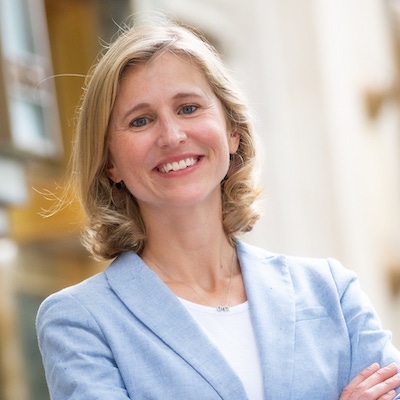Considering work in local public health – now’s the time
Category : PROspective
By Allison T. Chamberlain, PhD
In 2017, I had been on the faculty at Rollins for about 2 years. Thinking back on that time, the best way to describe how I was feeling about my role was that I was indeed liking it, but not loving it. Something was missing. I couldn’t quite put my finger on it at the time, but it had something to do with finding more practice-oriented uses of my research skills within the larger community.
In that same year I had the chance to begin working part time at the Fulton County Board of Health in downtown Atlanta. I didn’t entirely know what I was saying yes to, but I accepted the opportunity as I knew it would likely provide ways to connect my epidemiologic talents more directly with community-based needs. Plus, I had never worked in a state or local health department, and that was something I had always wanted to do.
For me, working inside the local health department has been that missing piece of job satisfaction. I have learned so much about how public health works at that most operational, community-based level. I have gotten to use my epidemiologic skills to help the health department collect data, analyze data, respond to outbreaks and prepare for the Super Bowl. In fact, I was downtown sitting with my colleagues at the health department exactly one year ago today (February 25) when the CDC announced that we “will see community spread” of SARS-CoV-2 in the U.S….it was a matter of when, not if.
So why share all of this? Because working at the local level is invigorating. For those of you who are debating whether to apply to jobs or fellowships at the local level, I say go for it. Get exposure to this environment sooner rather than later in your careers. You will learn so much. You will get so much real-world experience. You will see how much impact your efforts can have on real communities. You will not regret it.
Right now, our second call for applications is open for the Rollins COVID-19 Epidemiology Fellows Program. This program is part of our Emory COVID-19 Response Collaborative aimed at enabling our Rollins School of Public Health to do as much as it can to support our state and local health departments during this COVID-19 pandemic. This fellowship supports that mission by matching talented, early career epidemiologists with local health departments across Georgia – as well as at the state – to help build Georgia’s epidemiologic workforce. By keeping the fellows anchored to Emory, we are able to provide them with trainings, mentorship and special events that our top-tier school of public health can provide.
If you have an interest in working at the local level after graduation, now’s the time. It’s a wonderful place to learn, grow and serve, especially during the public health crisis of our lifetimes. I encourage you to apply to our fellowship program; the application period closes on Friday, March 5th.

Dr. Allison Chamberlain, PhD, is the Director of the Emory COVID-19 Response Collaborative (ECRC) and a Research Associate Professor of Epidemiology at the Rollins School of Public Health. To learn more about the ECRC, their current projects, and the fellowship program, click here.
Join the Conversation
Are you an alumni or current student in the Department of Epidemiology? Do you want to share your professional advice and experiences with a large audience of your peers? We want to hear from YOU! Consider becoming a contributing author for PROspective! To inquire, email your article idea directly to the editors at Confounder [at] emory [dot] edu!